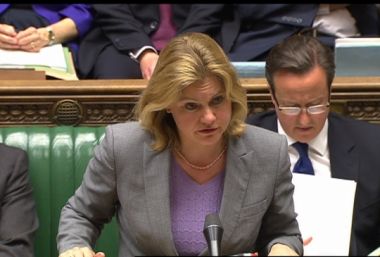Government aid encourages corruption and neglects the impact on poor, report says
The aid given by the UK Government to developing countries may be encouraging corruption in some cases, according to an independent watchdog. It is also not doing enough to combat corrupt practices, especially how they harm the poor, the group said.

Statistics released this week stated that the Department for International Development (DfID) gave £11.5bn in aid in 2013, 30.2 per cent more than the year before. But with an estimated $1 trillion being lost in developing countries due to corruption, charities argue that action on this issue is a vital part of effective development work.
The Independent Commission for Aid Impact (ICAI) assessed DfID's work on addressing corruption in the countries where it gives aid, particularly on how this affects the poor.
In today's report, ICAI gave DfID an 'amber-red' rating for its efforts, which means that it "performs relatively poorly overall against ICAI's criteria for effectiveness and value for money". The ICAI is the watchdog that monitors UK Government aid spending and assesses value for money for the UK taxpayer.
"We found that at least one programme supported by DFID appears to have increased the opportunities for corruption in society," the report said. "In our view, it is highly problematic for DFID to support government systems and structures that are known to be corrupt, especially if they increase the perception among the poor that corruption is a necessary and legitimate way of acting."
Some of the Government aid budget is given to foreign governments, and some to NGOs. But the ICAI surveyed ordinary people in Nepal to find their views on aid, and found that the majority preferred to work with projects funded by NGOs or donors, rather than governments. "We heard about citizens needing to pay bribes to government officials or to forge documentation in order to receive funding for projects supported by [the government]," the report states.
Although DfID has created schemes to tackle the problem, their effectiveness is in doubt. "We saw very little evidence that the work DFID is doing to combat corruption is successfully addressing the impact of corruption as experienced by the poor," Graham Ward, ICAI Chief Commissioner, said in a statement. "Indeed, there is little indication that DFID has sought to address the forms of corruption that most directly affect the poor: so called 'petty' corruption. This is a gap in DFID's programming that needs to be filled."
International Development Secretary Justine Greening had previously expressed support for Tearfund's anti-corruption campaign, and said the UK was taking steps to tackle the problem.
Tearfund's head of communications, Katie Harrison, said that overall, DfID did more to combat corruption than most European governments. "It's such a massive problem," she said. "When we go and talk to partners and churches around the world, and ask them what's the one thing that makes life difficult – every time it's corruption."
She gave an example of the impact of corruption on ordinary people. In Uganda, at one time 87 per cent of grants given for children's education went missing. But after a public campaign, this figure dropped to 10-20 per cent, meaning that thousands more children were able to go to school.
Tearfund and Micah Challenge's "Secret's Out" campaign is pressuring governments to act on corruption at the G20 summit in Australia next month. It has so far drawn 25,000 signatures in support.
"DFID needs to be at the heart of work to tackle corruption, since it can have devastating consequences where it excludes vulnerable citizens and those living in poverty from access to essential goods and services," said Beck Wallace, a corruption analyst at Catholic aid charity CAFOD. "DFID has a key role to play in listening to the views of women, men and children living in poverty about the impact of UK's anti-corruption work."
The report warned that corruption has a particularly negative impact on women. For example, bribery "diminishes the effectiveness of law enforcement, particularly where punishment of crimes relies on evidence from the victim," said the report. "This can badly affect women, in cases of trafficking and rape in particular."
"We observed a widespread acceptance of corruption by the populations of these countries," the report said. "In Nigeria, petty corruption touches virtually every aspect of life and is accepted throughout society as normal and necessary. We heard stories of parents paying bribes to teachers in order to educate their children; students paying bribes to administrators to take exams; workers paying bribes to get jobs and then to receive their salaries; and pensioners paying bribes to receive their pensions."
ICAI's previous report, in 2011, focused on the UK government's attempts to combat fraud within its aid system. The award was again, an 'amber-red'.











